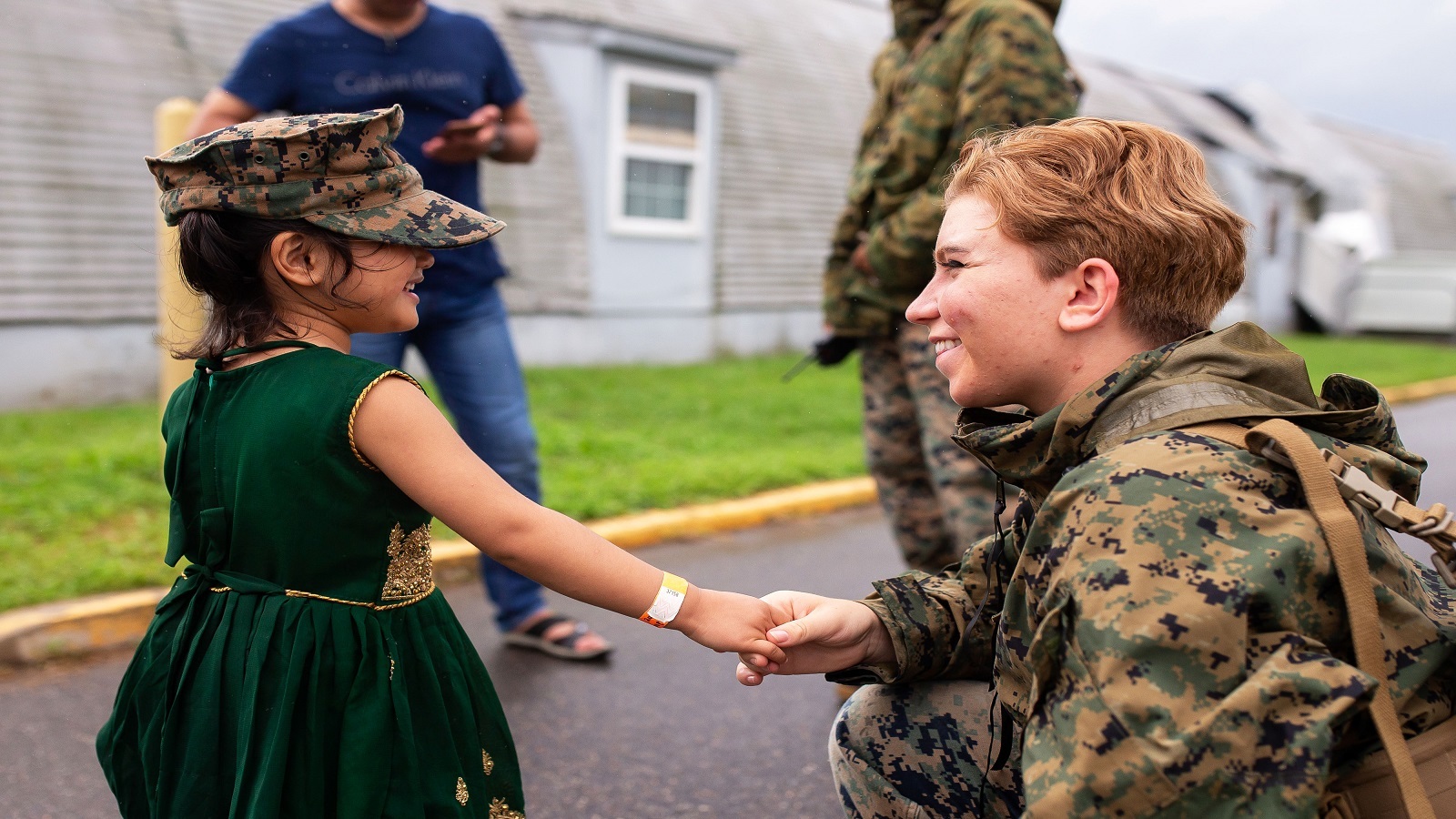Camp Atterbury in Indiana was recently cleared of the last of more than 7,000 Afghan nationals who were being temporarily housed in an effort to resettle the evacuees as part of Operation Allies Welcome.
According to a Jan. 26 release from the U.S. Department of Homeland Security, the last group left the base Jan. 25. There have reportedly been more than 66,000 Afghan evacuees resettled into communities across the country over the past five months.
Camp Atterbury was one of eight “safe havens” created by the U.S. Department of Defense involved in the installation efforts and the fifth to have cleared its base.
A Marine greets an Afghan child
| Tia Dufour, Marine Corps/defense.gov
The resettlement efforts are led by the U.S. Department of State, which works with more than 290 resettlement facilities nationwide. Operation Allies Welcome was created to airlift qualifying Afghan nationals to the U.S. as the war in Afghanistan wound down in an effort to find them a place to live and work in U.S.
“As operations at Camp Atterbury come to an end, we are grateful for the partnerships that state and local leaders, the Indiana National Guard, nonprofit organizations and Hoosiers across the state have forged with our team as we helped our Afghan allies through the resettlement process,” said Robert J. Fenton, Jr., senior response official for Operation Allies Welcome.
Gen. Glen D. VanHerck, commander of the U.S. Northern Command, said he was proud of the men and women involved in resettling the nearly 7,200 Afghan nationals who were at Camp Atterbury.
As of Jan. 27, the U.S. has welcomed more than 76,000 Afghan nationals through the Operation Allies Welcome program. There is temporary housing provided currently for the remaining 9,000 Afghans in the process of resettling at Fort McCoy in Wisconsin, Fort Pickett in Virginia and Joint Base McGuire-Dix-Lakehurst in New Jersey. While on the bases, Afghans have access to services like medical care and resettlement service, while also being able to apply for authorization to work.
Homeland Security says there will be additional qualifying Afghans assisted in resettling in the coming weeks and months. Before entering the U.S., evacuees must complete a screening and vetting process including biometric and biographic screenings. These are conducted by multiple federal agencies in intelligence, law enforcement and counterterrorism. The evacuees also receive vaccines including COVID-19, measles, mumps, rubella, polio and varicella. They are also tested for COVID-19.








